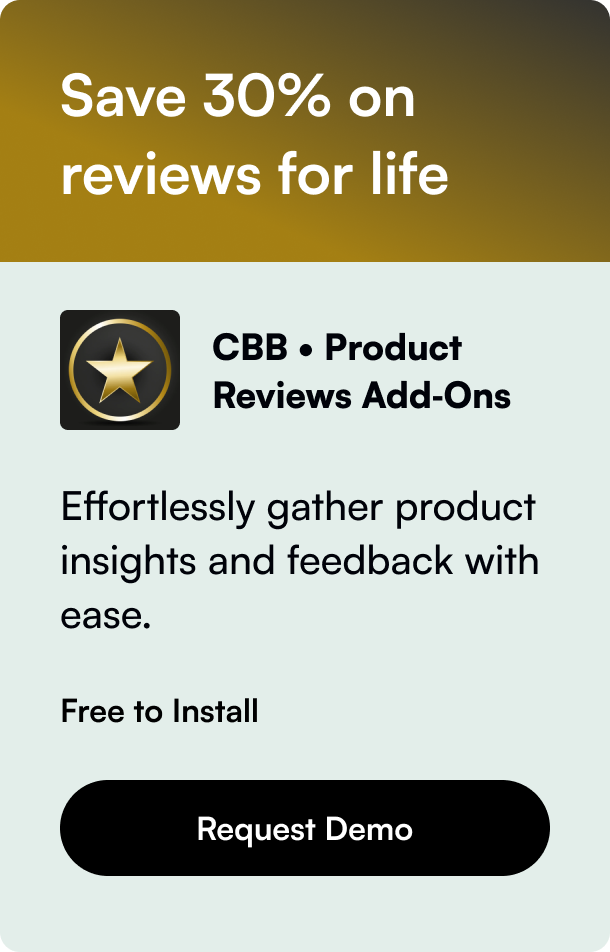Table of Contents
- Introduction
- Understanding eCommerce CMS Types
- Must-Have Features in the Best eCommerce CMS Platform
- Top 11 eCommerce CMS for 2024: In-Depth Analysis
- Key Considerations When Choosing Your eCommerce CMS
- Optimization Tips for Your eCommerce CMS
- Conclusion: Choosing the Best eCommerce CMS Platform for Your Business
- FAQ
Introduction
In the era of digital transformation, launching an online store has become more than just an option—it’s a strategic imperative for businesses seeking growth. With eCommerce sales expected to constitute 24% of global retail sales by 2026, establishing a robust digital presence is crucial. The cornerstone of this effort is selecting the right eCommerce Content Management System (CMS).
Choosing the right CMS can streamline your store management and allow you to concentrate on scaling your sales and perfecting your marketing strategies. Many platforms enable you to build a professional online store without requiring extensive coding knowledge.
This comprehensive guide will walk you through the top CMS platforms for eCommerce, helping you make an informed decision for your business. Let’s delve into the diverse world of eCommerce CMS and find the perfect match for your online venture!
Understanding eCommerce CMS Types
Before diving into the specific CMS recommendations, it’s essential to grasp the two main types of eCommerce CMS platforms: Open-Source CMS and SaaS (Software as a Service) CMS. Each type has its benefits and drawbacks, and the best choice depends on your business needs, technical skill level, and scalability plans.
Open-Source CMS
Open-source CMS platforms offer extensive customization options and are usually supported by a vibrant community of developers. These platforms are generally free to use, but you will incur costs related to hosting, domain registration, and possibly third-party extensions.
SaaS (Software as a Service) CMS
SaaS platforms offer a hosted solution where all technical aspects, from security updates to server maintenance, are managed by the service provider. This makes them a hassle-free option, although they tend to be subscription-based and can be limiting in terms of customization.
Must-Have Features in the Best eCommerce CMS Platform
When evaluating a CMS for your online store, consider the following essential features:
User-Friendly Interface
An intuitive backend allows you to manage products, process orders, and handle customer information with ease, reducing the learning curve.
Robust SEO Tools
To enhance your online visibility, your chosen CMS should offer built-in SEO features and integrate well with popular SEO plugins. Look for options that allow you to edit URLs, meta titles, and descriptions seamlessly.
Mobile-Optimized Experience
With a significant portion of users shopping on mobile devices, your CMS must provide a smooth, mobile-responsive user experience.
Seamless Integration Capabilities
Your CMS should support seamless integration with third-party plugins, extensions, and APIs, allowing for expanded functionalities as your business grows.
Scalability
As your business expands, your CMS should be capable of handling increased traffic, larger product catalogs, and higher sales volumes without compromising performance.
Top 11 eCommerce CMS for 2024: In-Depth Analysis
1. Adobe Commerce (Magento)
Adobe Commerce, previously known as Magento, stands out for its high customizability and scalability. It is particularly effective for B2B eCommerce, offering robust features tailored for business clients.
Highlights
- Highly customizable
- Scalable solutions
- Strong B2B features
Considerations
- Requires technical expertise
- Complex setup process
Pricing
Contact sales for detailed pricing information.
2. WooCommerce
WooCommerce is an open-source eCommerce plugin for WordPress, making it an excellent choice for businesses already entrenched in the WordPress ecosystem.
Highlights
- Seamlessly integrates with WordPress
- Extensive range of plugins
Considerations
- Dependent on WordPress
- Potential for increased costs with add-ons
Pricing
The core plugin is free, with add-ons ranging from $0 to $200.
3. BigCommerce
BigCommerce offers a versatile SaaS platform that caters to businesses of all sizes, from startups to large enterprises.
Highlights
- Scalable and versatile
- Excellent multi-channel selling features
Considerations
- Monthly subscription costs
- Limited design flexibility
Pricing
Plans start at $29.95/month.
4. Shopify
Shopify is renowned for its ease of use and extensive app marketplace, making it one of the most popular choices for eCommerce.
Highlights
- User-friendly setup
- Broad selection of apps
Considerations
- Monthly subscription fees
- Transaction fees unless using Shopify Payments
Pricing
Free 14-day trial, then plans range from $29 to $299 per month.
5. PrestaShop
PrestaShop offers a balanced mix of functionality and affordability, making it a good choice for businesses looking for an open-source solution.
Highlights
- Strong community support
- Numerous customization options
Considerations
- Requires technical knowledge
- Costs for hosting and premium plugins
Pricing
The core software is free, but hosting and add-ons cost extra.
6. Shopware
Shopware provides a flexible eCommerce solution suitable for various business sizes, from small shops to large enterprises.
Highlights
- Customizable and scalable
- Strong B2B functionality
Considerations
- High initial cost
- Limited community support compared to other platforms
Pricing
Starts at $600/month for the professional version.
7. Squarespace
Squarespace is known for its stunning templates, delivering an all-in-one platform for creating visually appealing online stores.
Highlights
- Beautiful design templates
- Built-in marketing tools
Considerations
- Limited eCommerce functionality compared to specialized platforms
- Monthly subscription costs
Pricing
eCommerce plans range from $16 to $49 per month.
8. Drupal Commerce
Drupal Commerce is an open-source eCommerce framework built on the Drupal CMS, offering extensive customization options.
Highlights
- Highly customizable
- Strong support community
Considerations
- High learning curve
- Additional costs for premium modules and hosting
Pricing
The core software is free, but hosting and premium modules cost extra.
9. Wix
Wix, a user-friendly website builder, has significantly enhanced its eCommerce capabilities over recent years.
Highlights
- Intuitive interface
- Integrated marketing tools
Considerations
- Limited customization options
- Subscription-based
Pricing
eCommerce plans start at $4.50 per month.
10. HubSpot CMS Hub
While not primarily designed for eCommerce, HubSpot’s CMS Hub offers robust content management features and can be integrated with eCommerce functionalities.
Highlights
- Strong CRM integration
- Excellent marketing automation tools
Considerations
- Not specialized for eCommerce
- Higher costs for advanced functionalities
Pricing
Starts at $25 per month, with eCommerce features available on higher-tier plans.
11. Shift4Shop
Formerly known as 3dcart, Shift4Shop is a feature-rich eCommerce platform suitable for various business sizes.
Highlights
- Robust feature set
- Strong SEO tools
Considerations
- Complex interface
- Subscription-based pricing
Pricing
Contact sales for detailed pricing information.
Key Considerations When Choosing Your eCommerce CMS
To make the best choice for your eCommerce CMS, consider these crucial factors:
- Business Size and Needs: Understand the scale and specific requirements of your business.
- Technical Expertise: Assess your team’s technical capability for platform customization and management.
- Budget: Factor in all costs, including subscription fees, hosting, and third-party integrations.
- Scalability: Ensure the CMS can grow with your business without compromising performance.
- Support and Community: Opt for a platform with robust support and a large, active community.
Optimization Tips for Your eCommerce CMS
After selecting your eCommerce CMS, focus on these strategies to optimize performance:
Implement a Strong SEO Strategy
Enhance your site’s visibility by optimizing product descriptions, using alt texts for images, and creating SEO-friendly URLs.
Enhance Your Product Pages
Offer detailed product descriptions, high-quality images, and customer reviews to enhance usability and trustworthiness.
Improve Site Speed
Faster load times contribute to better user experiences and higher conversion rates. Optimize images, leverage browser caching, and use a content delivery network (CDN).
Focus on Mobile Optimization
Ensure your site is mobile-responsive to cater to on-the-go shoppers, which forms a significant portion of your audience.
Leverage Content Marketing
Utilize blogs, how-to guides, and other valuable content to attract, engage, and convert visitors.
Conclusion: Choosing the Best eCommerce CMS Platform for Your Business
Selecting the best CMS for your eCommerce needs is a critical decision that can greatly influence the success of your online business. Each platform discussed here brings unique strengths, making your choice dependent on your specific requirements, technical capabilities, and business goals.
Remember, the right CMS should empower you to focus on growing your business and delighting your customers. With the appropriate platform, you'll be well-equipped to navigate the dynamic and ever-evolving eCommerce landscape.
If you need expert guidance in selecting and implementing the optimal eCommerce CMS for your business, feel free to reach out for professional advice. Our team is here to support you in driving your eCommerce success.
FAQ
1. What is the difference between Open-Source CMS and SaaS CMS? Open-source CMS platforms offer extensive customization options but require more technical expertise. In contrast, SaaS CMS platforms are easier to manage as they handle technical aspects like security and server maintenance.
2. How important is mobile optimization for my eCommerce store? Mobile optimization is crucial as a significant portion of customers shop using their mobile devices. A mobile-responsive site ensures a seamless shopping experience across all devices.
3. Why is SEO important for my online store? SEO enhances your online visibility, making it easier for potential customers to find your store through search engines. Effective SEO practices can lead to higher traffic and increased sales.
4. Can I build a professional-looking store without coding knowledge? Yes, many eCommerce CMS platforms are designed to be user-friendly and provide drag-and-drop options, allowing you to build a professional store without coding skills.
5. How do I choose the right eCommerce CMS for my business? Consider your business size, technical expertise, budget, scalability needs, and the level of support available when choosing an eCommerce CMS. Assess these factors to find the platform that best fits your requirements.







